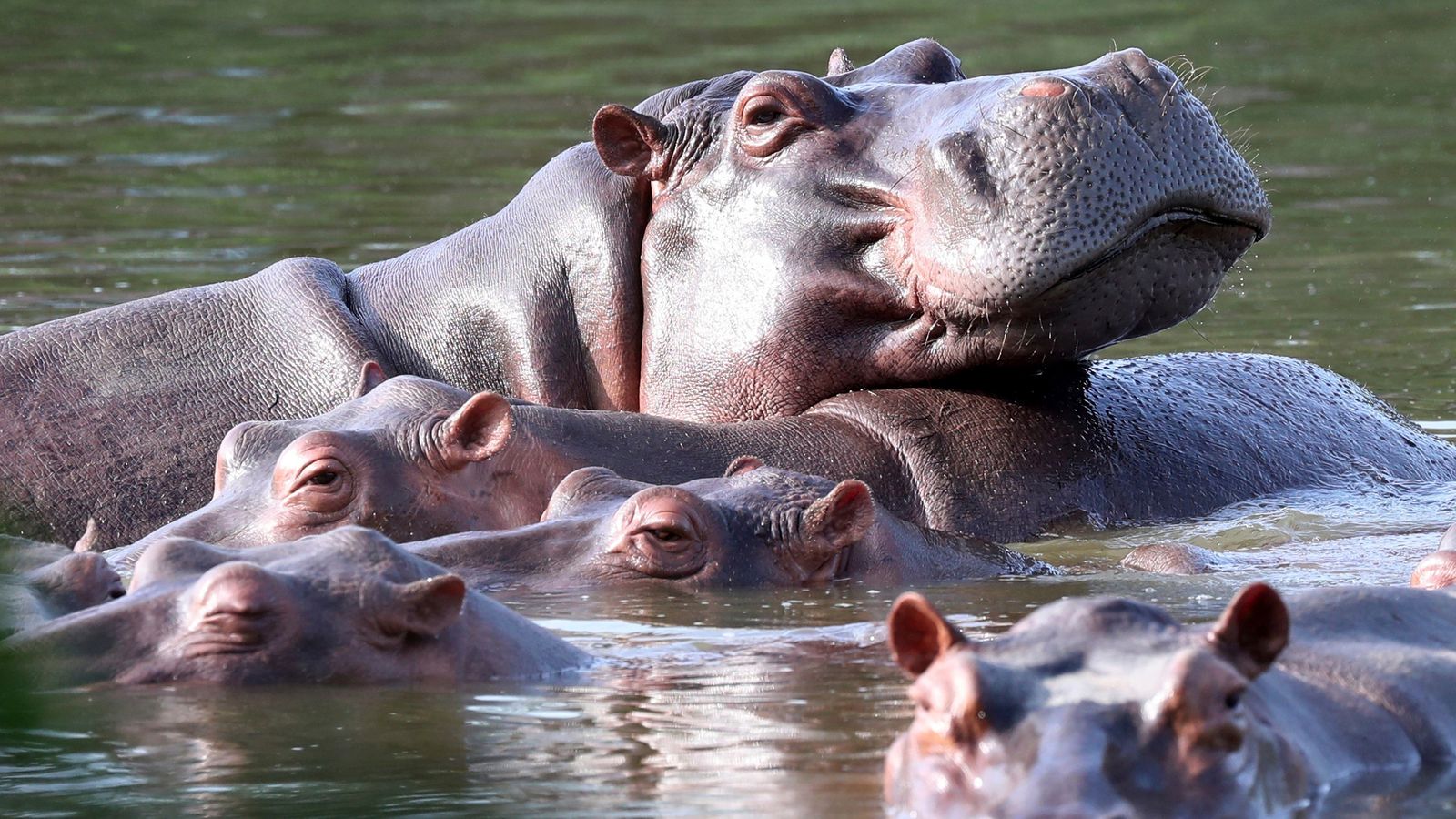Colombia has announced plans to control its hippo population amid fears it is spiralling out of control after drug kingpin Pablo Escobar introduced them to the country.
The government said they plan to curb numbers through sterilisation and the transfer of the mammals to other countries – as well as possibly by euthanasia.
It comes after a group of hippos were brought to Escobar’s private zoo on his estate in the 1980s. It became a tourist attraction after his death in 1993.
But the animals also went into nearby rivers – and have since flourished as they have no natural predators in Colombia.
There are an estimated 169 hippos in the country, with most located in the Magdalena River basin.
Officials have declared the animals an invasive species and warned that, if no measures are taken, their population could rise to more than 1,000 by 2035.
Be the first to get Breaking News
Install the Sky News app for free
Environment Minister Susana Muhamad said the first stage of the plan would be the surgical sterilisation of 40 hippos a year, which will start next week.
The task is expensive and difficult, with each procedure costing about $9,800 (£7,900). The ministry said the hippos were dispersed over a large area, and warned they are territorial and often aggressive.
Read more from Sky News:
Israel-Hamas war: Hezbollah leader warns of possible escalation
Liverpool footballer back in training amid ‘hope’ for kidnapped dad
Motorcyclist in hospital after tarantula causes crash
Ms Muhamad said officials had also contacted authorities in Mexico, India and the Philippines, and were evaluating plans to send 60 hippos to India.
She added: “We are working on the protocol for the export of the animals.
“We are not going to export a single animal if there is no authorization from the environmental authority of the other country.”
In April, one of Escobar’s former hippos died after being hit by an SUV on a highway from Bogota to Medellin.
Scientists have warned that the hippos’ faeces can change the composition of rivers and could impact the habitat of local manatees and capybaras.









